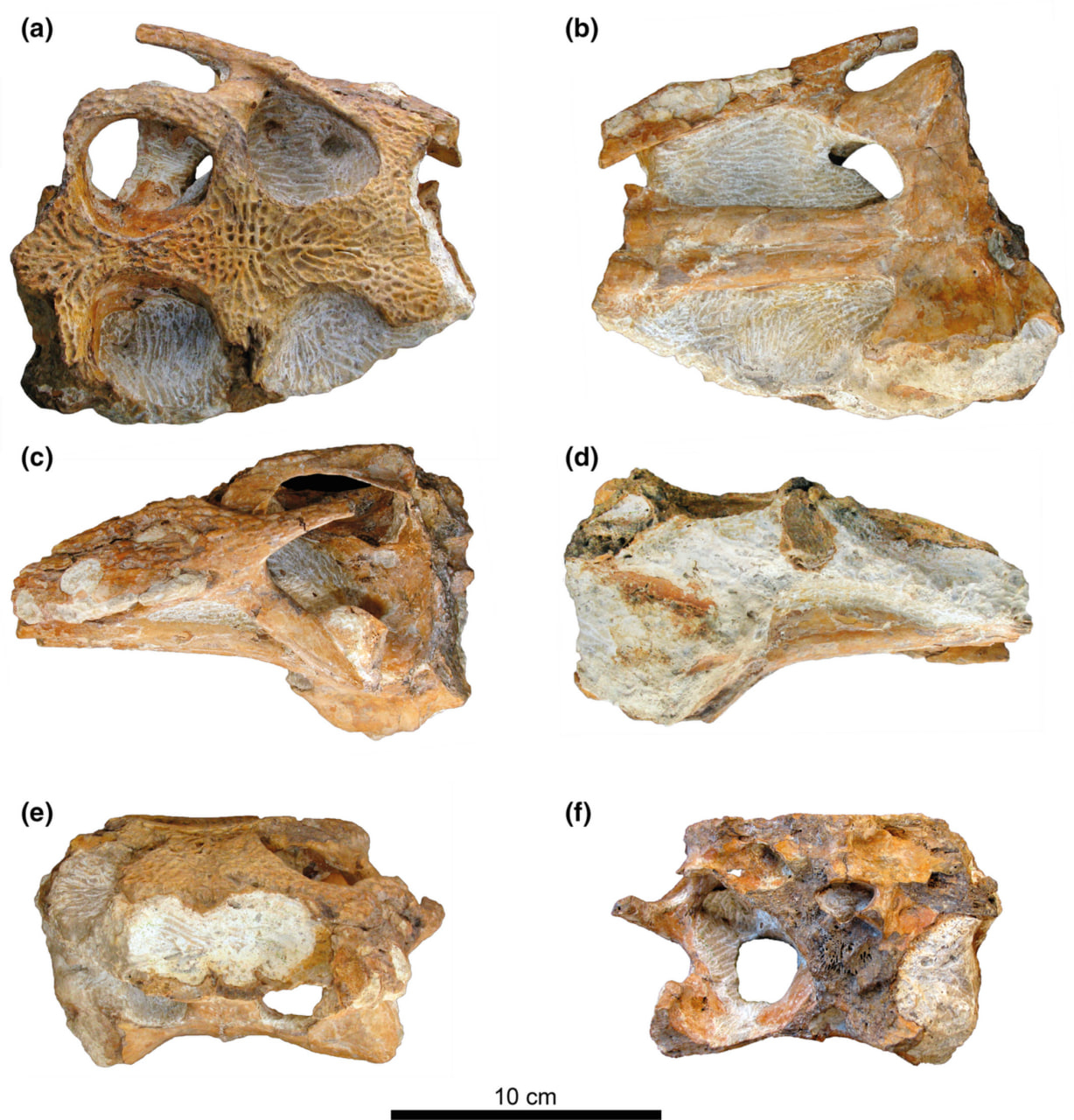By a skull found in Portugal, St Petersburg University palaeontologist identifies the most ancient ancestor of modern crocodiles
A team of scientists from St Petersburg University, the University of Zaragoza, NOVA University Lisbon, and the Autonomous University of Barcelona have studied the fossil remains of Portugalosuchus, a crocodylomorph previously discovered in Portugal. It turned out that this species inhabiting the Earth about 100 million years ago was one of the most ancient ancestors of modern crocodiles.
Crocodylomorphs are a group of reptiles that includes about 25 species of crocodiles that exist today and their extinct relatives. The only fossil remains of Portugalosuchus, the posterior half of the skull and part of the lower jaw, were discovered in Portugal in the mid-2000s. In 2019, Portuguese and Spanish scientists described this species and did a CT scan of the remains. The scan was then sent for research to Ivan Kuzmin, an early career researcher at St Petersburg University. He works as an Assistant Lecturer in the Department of Vertebrate Zoology.
The research results are published in the Journal of Anatomy.
’Based on the data obtained, we were able to create a 3D model for each preserved skull bone and study the internal cavities of the head, which had contained the nasopharyngeal passages, the brain, the nerves, the carotid arteries, and the inner ear. We have found out that, in addition to being one of the oldest crocodiles known today, Portugalosuchus is a close relative of the long-snouted gharials inhabiting India and East Asia, which are almost completely extinct today,’ Ivan Kuzmin said.
The analysis of digital casts of the brain and sense organs of the animal have demonstrated that Portugalosuchus was able to hear the same sound frequencies as modern crocodiles. These are low sounds ranging from 100 to 3–4 thousand Hz. Thus, the ancient crocodile could hardly hear, for example, a mosquito buzzing, but it would have been able to distinguish human speech. According to the scientists, the sense of smell of the studied species is also comparable to that of modern crocodiles. Although it is less sensitive than the sense of smell of predatory mammals, it is still one of the main sense organs of these reptiles.

According to the St Petersburg University palaeontologist, the phylogenetic analysis based on the CT scanning data not only provided new results on the position of Portugalosuchus in the general lineage of crocodiles, but also laid the foundation for further study of the evolution of modern crocodiles. These animals have gone through a long evolutionary path, including the change of their habitat.
At the time of the existence of Portugalosuchus in the Late Cretaceous, Europe did not look like it does now. It was flooded and turned into an archipelago of numerous islands differing in size. The remains of Portugalosuchus have been found in coastal marine sediments. The scientists therefore suggest that this ancient crocodile lived on one of such islands.

